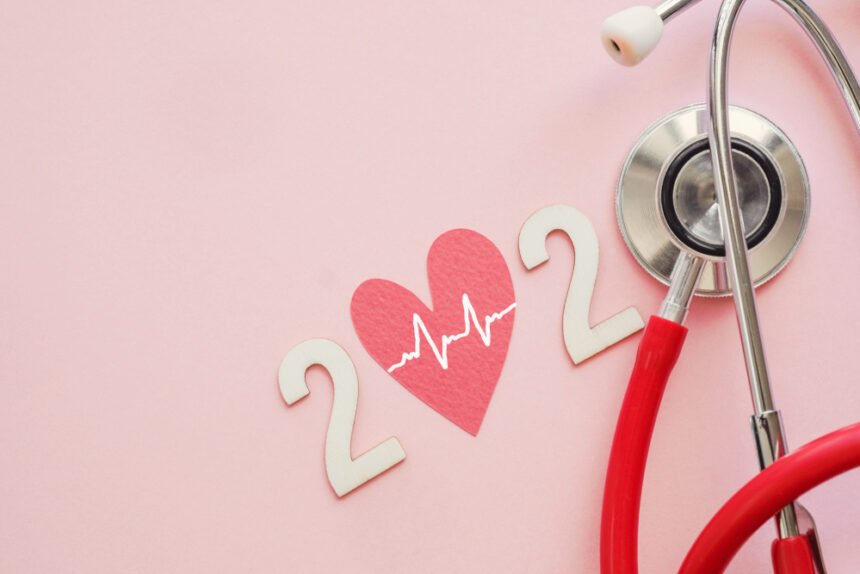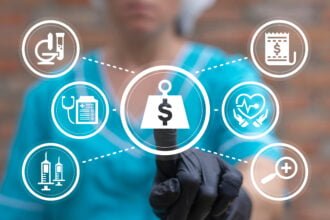A new year brings the promise of new technology, especially in the ever-advancing field of healthcare. Every year, healthcare is working to address shortcomings within existing systems and to help patients lead better, happier, and healthier lives. So what’s in store this year in health tech disruption? Here are some of the trends to look out for in 2020.
- Look for Technology to Improve Patient Opportunities
- Nanotechnology will Improve & Personalize Treatment
- Coming Closer to Managing Population Health
- Forensic Nursing Will Improve Mental Health Assessment Procedures
- Big Data & Wearable Health Will Continue to Benefit Health Industries
- Will AI Impact the Health Industry Too?
- 2020: a Year of Incredible Healthcare Advancements
Look for Technology to Improve Patient Opportunities
Losing a limb is more common than you might think. In fact, around 2 million people in the United States alone are living without one or more limbs. Amputation is often necessary to save lives, but it can mean many challenges in everyday life. Just a few years ago, bionic limbs were only the stuff of sci-fi books and movies. But today, prosthetic limbs are quickly becoming more advanced and may soon allow amputees to regain their ability to perform daily functions much more easily. One of the most impressive advancements in bionic prosthetics is the LUKE arm. This artificial limb, which was first given to two veterans in 2017 after its approval in 2014, allows for more complex and varied hand and arm motions. What’s next? In the future, we can expect to see advanced sensor-controlled prosthetics that will allow patients to use an artificial limb without conscious thought, further increasing opportunities for patients and reducing everyday challenges that amputees face.
Nanotechnology will Improve & Personalize Treatment
Everyone is different, which is why personalized healthcare has become such a major focus over the last decade. Nanotechnology, which is a major area of healthcare research in 2020, could help to improve how we deliver and personalize care. In fact, the nanomedicine market is growing so fast that it is expected to hit $350.8 billion globally in just the next 5 years. Nanotechnology is the science of working with matter on an atomic scale and smaller. While the potential applications for this technology in healthcare are almost countless, the use of nanotechnology in medicine is still in its early stages. Currently, nanotechnology is in development for uses such as drug delivery, early detection of cancers and other diseases, instrument sterilization, and cell repair. Once the technology has advanced and can be used in precise applications, nanotechnology could make a huge impact on personalized care.
Coming Closer to Managing Population Health
With the coronavirus sweeping through China, there has been a major spotlight on the issue of public and population health. But aside from preventing and controlling epidemics and pandemics, managing population health means working to keep communities healthy and population healthcare costs low. In the past, healthcare in the United States was mostly focused on providing reactive care. Patients would come to the doctor when they were sick to receive treatment but weren’t offered much in the way of preventative care. That’s changing, thanks in part to big data. By learning about the health challenges that communities face, healthcare workers and social workers can head into their communities and get to work. Services like increased transportation, education, and nutrition help are all making a difference in the health of populations all over the country.
Forensic Nursing Will Improve Mental Health Assessment Procedures
With intimate partner violence, elder abuse, child neglect, and sexual assault increasing globally, there is a heightened need for forensic nurses at the bedside. Despite prevention education, assault, elder abuse, and intimate partner violence continues to rise, and many states have enacted mandates requiring a forensic nurse be present in every emergency department. A forensic nurse has the insight and training to assess a patient’s mental and physical state and set in motion the appropriate legal measures. According to Dr. Kimberly Kasper, assistant professor for Duquesne University’s online msn in forensic nursing program, “forensic nurses bring comprehensive education in advanced physical assessment, advanced pathophysiology, theories of violence, the unique understanding of the mental/physical needs of the patients that have been subject to violence physically and psychologically.” “They bring a forensic mindset and evidenced based knowledge to the bedside that is unique to forensic nursing that very few nurses or health care providers hold. The healthcare industry could lesson the direct and intangible costs across the board by having forensic nurses in their respective institutions.”
Big Data & Wearable Health Will Continue to Benefit Health Industries
We love our wearables in the United States—in 2020, about 23.3% of the adult population will use wearable technology. But these devices can do a lot more than just track our steps—they can also benefit patients’ health and help physicians monitor people with chronic conditions or risk factors. Using wearables, patients can gain a number of benefits, such as tracking their heart rate or oxygen saturation, understanding their sleep quality, and becoming more active by understanding their habits. Big data, although still limited in healthcare due to privacy concerns, is continuing to make a big impact in the industry. People who use wearables are generating huge amounts of data that could one day be used to help patients enjoy better health or to spot health trends in certain regions or populations.
Will AI Impact the Health Industry Too?
AI is making its way into just about every industry, including healthcare. While many other healthcare technologies focus on patient care, AI may be more useful in making notoriously inefficient processes, like clinical trials and healthcare operations, more streamlined. This could save billions each year and help cut some of the unnecessary costs the industry generates. Additionally, AI and machine learning could help to create better options for diagnosis and creating treatment plans. Just about every aspect of healthcare could be assisted by AI in 2020!
2020: a Year of Incredible Healthcare Advancements
If 2020 is anything like the last few years, then we’re likely to see a lot of exciting technology coming into the healthcare space. People can look forward to more personalized treatment plans, better preventative care, and better options for diagnosing and managing health conditions with the help of advanced technology.










